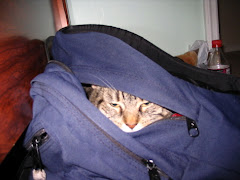
How do you get a child to read? For many kids learning to read is one of the more difficult (and sometimes frustrating) aspects of school. Parents can help by motivating their kids daily, whether it's reading for an hour to a pre-schooler or getting an older child interested in a reading assignment for class. But how do you do that? Here are a few books with suggestions on how to get your kids reading regularly, from SchoolLibraryJournal.com and Reading is Fundamental.
(You can find a library copy of any book on BookBag, and your nearest library, by typing in the title or author in the World Catalog box at the top left, above.)
Tips for helping your child learn to read
- Learn more about your child's interests and suggest books, magazines, and articles that relate to those topics.
- Sometimes good movies are a starting point for pleasure reading — after seeing a movie based on a book, children will be motivated to read the book.
- Sometimes travel sparks reading, and finding books that relate to a place you visit on a family vacation can get a child hooked.
- Keep books and other reading materials at home.
- Read books with your children! Children of any age can appreciate being read to.
- Be a good role model — let your children see you reading.
- Try a hands on activity. There are many activities that tie in literacy themes. (Try RIF's activity search for ideas.)
- 20 Ways for Parents to Encourage Reading
- Children Who Can Read, But Don't ...
- Getting the Family Excited About Magazines
- Getting Your Child to Love Reading
- How to Nurture a Growing Reader
- Increasing Motivation: Reading Tips from Kids
- RIF's Ter-RIF-ic Summer Reading Tips for Families
- Simple Things Parents Can Do to Help Their Child Become a Reader
Try one of the suggestions below or search the database of activity ideas.
- Make a Book Chain
After they read a book, children add a link on a paper chain. Can one child make the chain reach from the ceiling to the floor? Read more... Around the World in Eighty Books
Reading can make globe-trotters of your children or send them on a cross-country trek. Read more...
- Book Adventure
http://www.bookadventure.org/
Book Adventure, created by Sylvan Learning Foundation, is an online reading motivation program for children in grades K-8. Children create their own book lists, take multiple choice quizzes on the books they've read offline, and earn points and prizes for their literary successes, all while parents keep track of their achievements. - Reading Rockets: Tips for Encouraging Kids to Read
http://www.readingrockets.org/article.php?ID=393
Find several suggestions for simple ways to motivate your readers. - Raising Eager Readers
http://www.eagerreaders.com/encourage.html
View advice and book recommendations from the Eager Readers website.
Reading Aloud
- Facts About Reading Aloud
- The Art of Reading Aloud
- Read Aloud in Any Language
- Reading Aloud to Your Children
- Reading with Your Child
- Tips for Reading Aloud with Babies
- Tips for Reading Aloud with Toddlers
- Tips for Reading Aloud with Preschoolers
- Tips for Reading Aloud with Elementary School Children
- Tips for Reading Aloud with Preteens and Teens
- Suggested books for reading aloud
The Parent-Child Book Club: Connecting With Your Kids Through Reading by Melissa Stoller and Marcy Winkler, Horizon Line Publishing, NY, 2009): Whether you're a teacher, a parent, or a librarian, when it comes to motivating young learners to read, The Parent-Child Book Club has intelligent and easy-to-use suggestions.
Stoller and Winkler walk you through the steps on how-to-start a book club, and every page has its own resources and guidelines as well as lots of parent-child book club resources. Here are a few topics: Conducting the Book Club and the First Book Club Meeting Theme-Related Projects, Activities, Puzzles, Games Creating Thoughtful Questions and Discussions.
Also included are valuable sections regarding quick tips for success, book club do’s and don’ts, and real life issues solved. Time-saving lists of common art supplies that relate to many projects, and lists of projects that complement many book themes, are also offered. Especially useful are annotated lists of age-appropriate children’s books, adult reference books, and helpful websites.









No comments:
Post a Comment